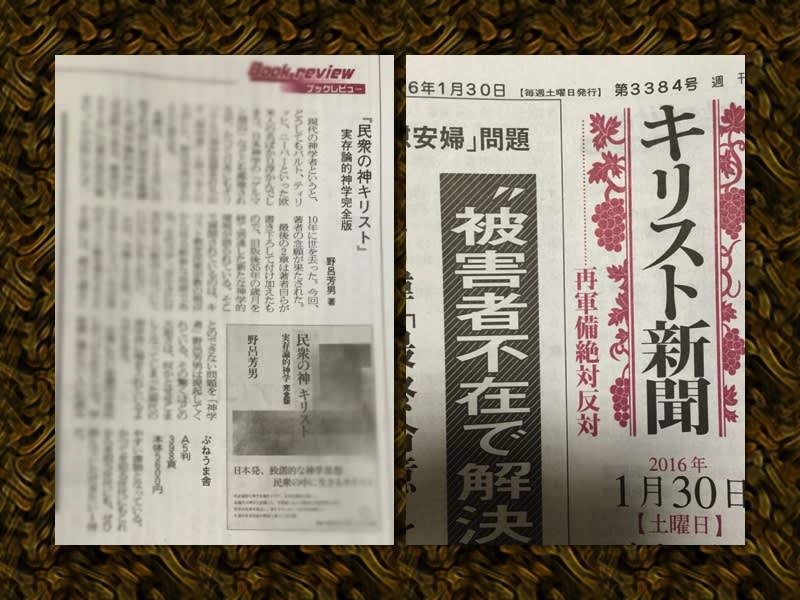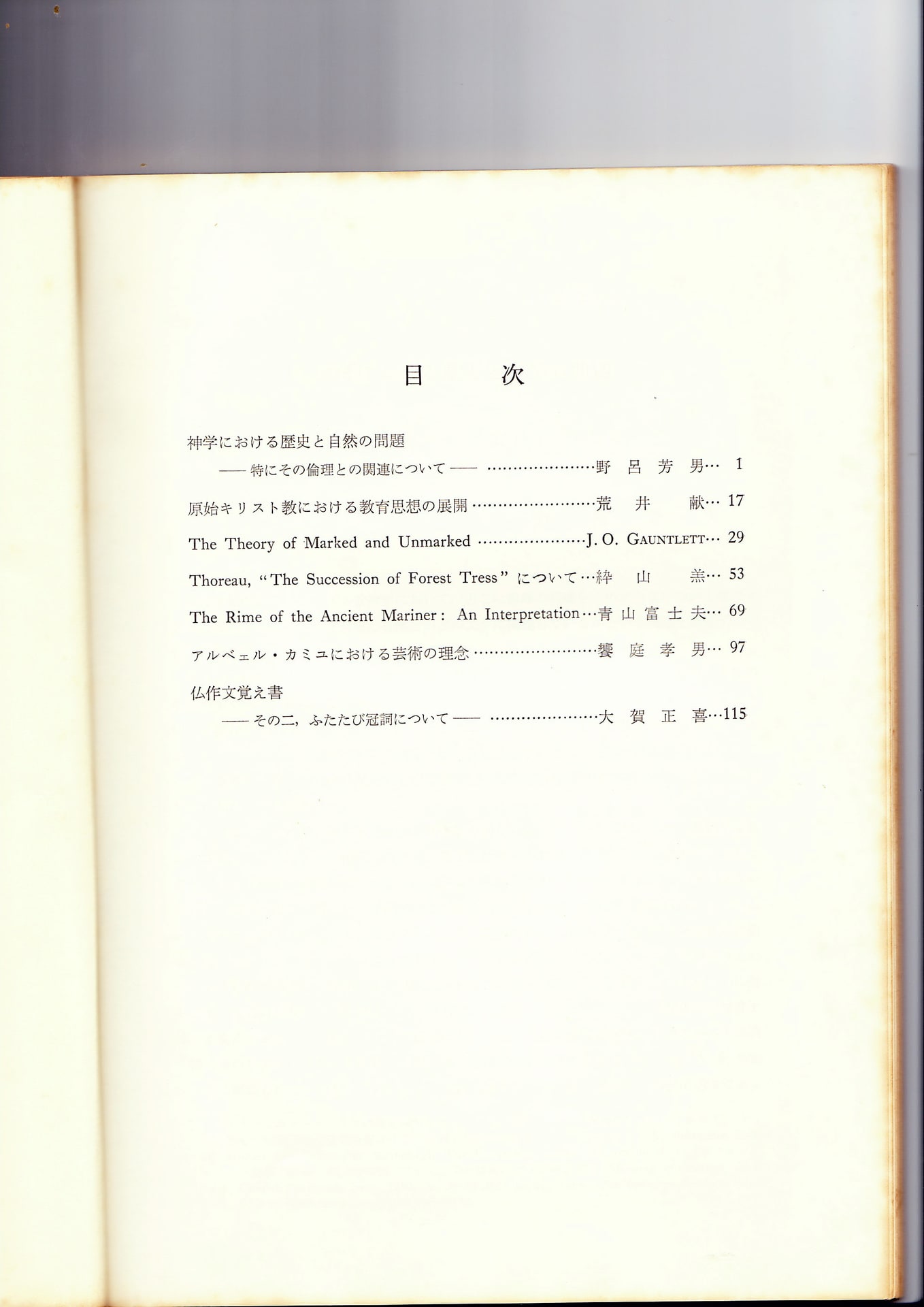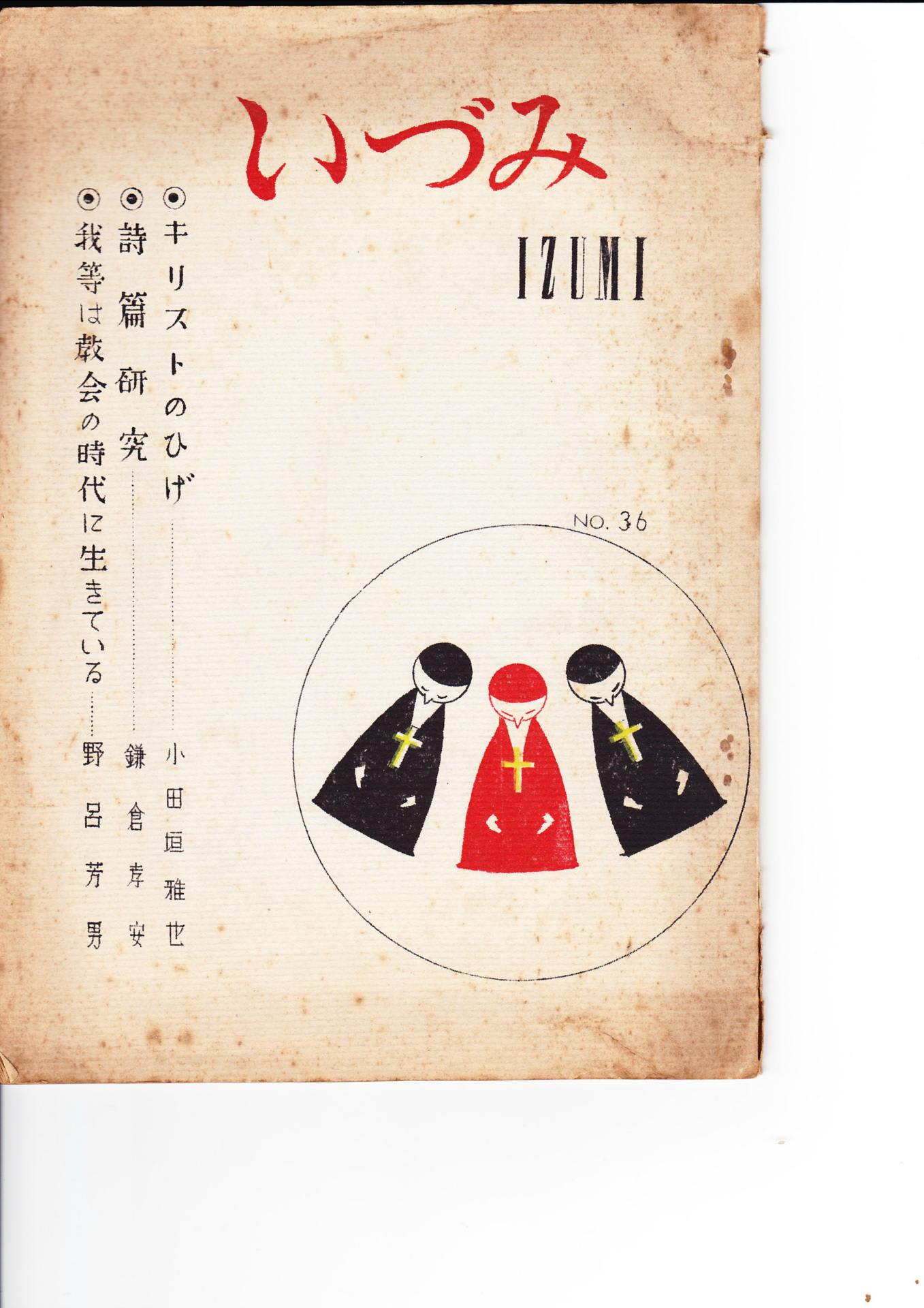"None of the important critical biographies of Wesley, nor any of the important theological studies of his thought, which have appeared in English and other European languages during the revival of interest in Wesley as a theologian of the past thirty-five years or so have been translated into Japanese. Until the appearance of Yoshio Noro's Wesley there was no systematic critical work in Japanese. Noro, currently [*1969] chairman of the department of theology at Aoyama Gakuin University in Tokyo, continues the tradition in Wesleyan scholarship which has been gradually built through the years by such men at Aoyama Gakuin as Takuo Matsumoto, Shigemi Kega (president 1956-1958), Kamenosuke Tanaka, Mizutaro Takagi (chancellor 1913-1921), and Motozoh Akazawa. However, it is not excessive to say that he has surpassed those who preceded him both in terms of sustained Wesleyan study and critical scholarship. His first published work on Wesley was "Justification and Sanctification in Wesley" in Fukuin to Jidai (Gospel and Times) in 1948. He has continued publishing the results of the studies and of his translation efforts, most of which have been mentioned above. A recent essay was " The Existentialistic Tendency of Wesley's Christology" published in the Aoyama Gakuin Ronshu (Journal) in 1967. His book Wesley was brought out by the Publishing Department of the United Church of Christ in Japan in 1963 as one volume in its series on the history of Christian thought. The work is a balanced survey of Wesley's life and thought, illustrated by ample quotations from the basic sources, and illuminated by an abundance of references to the history of Christian thought giving due attention to the work of other Wesley scholars. Noro brings a unique point of view as Christian existentialist to the interpretation of Wesley's thought as an experiential theology with an existentialist tendency. The eight chapters of the book deal in order with Wesley's life, epistemology, anthropology, Christology, his treatment of the work of Christ, justification and sanctification, Christian perfection, and assurance."
--Quoted from John W. Krummel: Wesley Studies in Japan. The Northeast Asia Journal of Theology, March 1969.
--Quoted from John W. Krummel: Wesley Studies in Japan. The Northeast Asia Journal of Theology, March 1969.












 (林昌子)
(林昌子)

